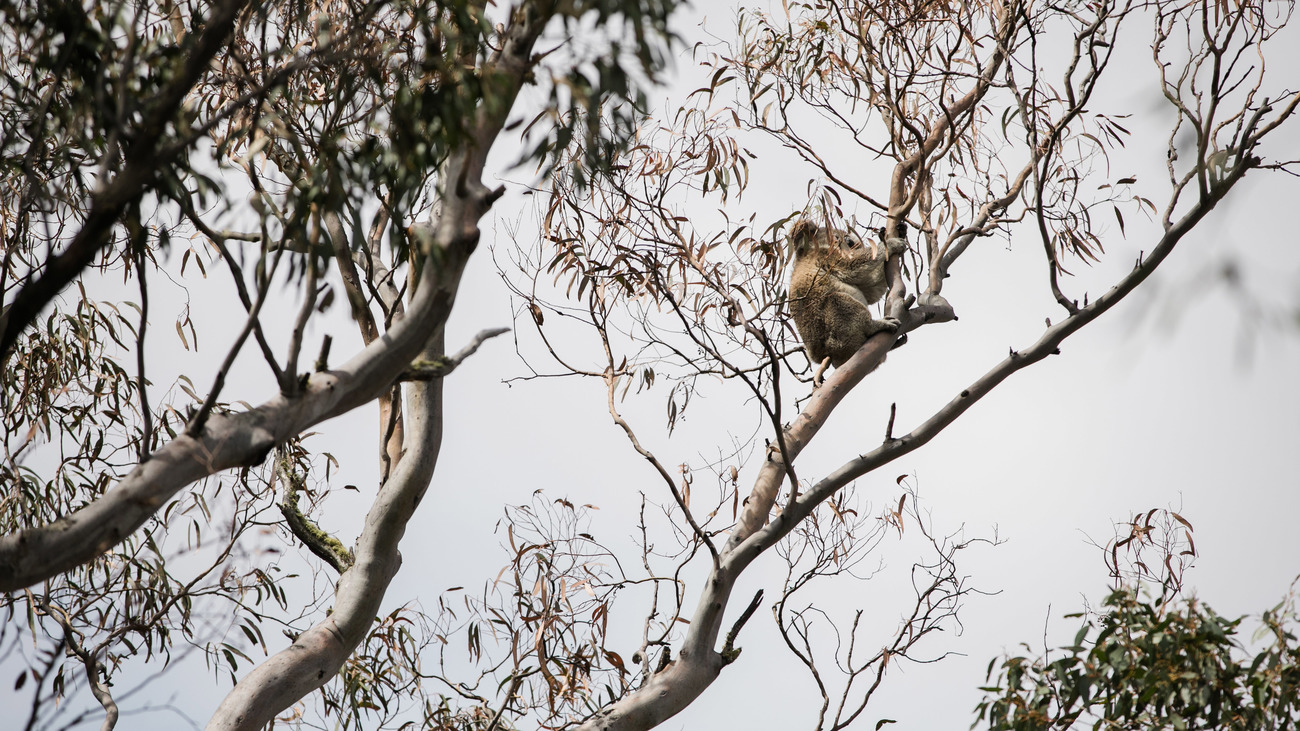Josey Sharrad
Two Thumbs Wildlife Trust: a story of compassion and a home for koalas
Two Thumbs Wildlife Trust: a story of compassion and a home for koalas

The 2019-2020 Australian bushfires devastated the land, its people, and the animals who call this incredible place home. It also put a spotlight on the extraordinary people who devote their lives to rescuing and caring for animals. At IFAW, we are honoured to work alongside such an amazing network of volunteer wildlife rehabilitators.
Among them is James Fitzgerald. He is a true wildlife hero who has proven time and again that nothing will stand in his way of helping animals to survive and thrive. James has been rescuing and rehabilitating Australian wildlife since he was a child. He now owns and operates Two Thumbs Wildlife Trust (named after the two thumbs of a koala’s paws) in Peak View, Southern New South Wales (NSW).
Battling the bushfires
The property is made up of a trio of sanctuaries, spanning over 1,800 acres of pristine protected wilderness. This undeveloped area is a wildlife hotspot and home to one of Australia’s most unique koala populations as well as kangaroos, wallabies, gliders, lyrebirds and quolls. The sanctuary serves as an important release site for other native wildlife groups including Wildcare Queanbeyan, Possumwood Wildlife Sanctuary, Looking After Our Kosciuszko Orphans (LAOKO) and Native Animal Rescue Group (NARG).
This all changed when disaster struck during the catastrophic 2019/20 bushfire season. When fire encroached towards his own property in early January, James and his fellow RFS volunteers fought hard to protect the sanctuary. The fire burned two kilometres into the sanctuary but stopped 200 metres from his house.
On January 23rd, double tragedy struck. The wind changed and pushed the fire towards Two Thumbs. It tore through relentlessly, burning his home, sanctuary and life’s work. James had been taking a koala to the vet and was not at home at the time. Devastatingly, the koalas and other animals on his property died.
The disaster was not over. A fire-fighting air tanker battling to protect James’ sanctuary that same day crashed onto his neighbouring property, killing all three American crewmembers onboard.
The aftermath of disaster
Since that tragic day James has been on a mission to find and save animals. Immediately after, he conducted daily ‘black walks’ of his property with volunteers to search the charred landscape in the hope of finding survivors. It was a tough job. Koalas are notoriously cryptic creatures and challenging to spot with the human eye. That’s where Bear, USC x IFAW’s koala detection dog, came to the rescue.
Bear was deployed in February to search for survivors. Along with his handler Romane Cristescu, and koala rescuer and drone operator Kye McDonald, Team Bear found nine koalas in need of rescue. Among them were mum and bub Jessie and Amelia and a koala fittingly named Bear. Many of the rescued koalas were rehabilitated at the Australian National University (ANU) under the supervision of Dr. Karen Ford. They were later moved back to Two Thumbs.
Returning to the wild and rebuilding
As the habitat slowly recovers, koalas continue to be released back to the wild. Bear and Hamish (named after James’ local vet Hamish Cameron) were released in July. They’re being tracked by ANU and are doing well. Jessie and Amelia (along with surprise pouch joey Jazz) were released in August along with bushfire orphans Mark and Jarrah.
James also named three rescue koalas in memory of the brave US servicemen who died in January - Captain Ian H McBeth, First Officer Paul Hudson and Rick DeMorgan Junior. Months later, in early November, Ian the koala was released back into the wild.
James hopes to rebuild the sanctuary to be even better than before. IFAW continues to support him by contributing to the cost of rebuilding new purpose-built koala enclosures. The sanctuary is also survey site for a joint three-year research project between IFAW and USC which aims to assess the impact of bushfires on koala health and resilience.
We are so grateful to James for his ongoing dedication to Australian wildlife. James – you are truly an inspiration!
James has also donated AUD $100,000 (raised via an online fundraising platform) in the US pilots' names to koala research being conducted through ANU, led by Dr. Karen Ford.
Assessing koala health after the bushfires
The koalas that survived the fires were the subject of an important research project led by Dr Karen Ford at the Australian National University (ANU). The results reveal that koalas can survive in burned landscapes, provided there is enough food, which is crucial in informing future interventions.
Related content
Every problem has a solution, every solution needs support.
The problems we face are urgent, complicated, and resistant to change. Real solutions demand creativity, hard work and involvement from people like you.